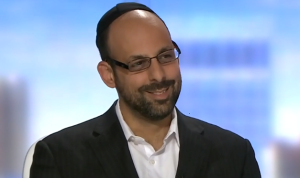By Shaya Silber
Generally speaking, there are two requirements for content to be considered defamatory. The first requirement is that the content is false. The second requirement is that the content is damaging. (see What is Defamation? for further elaboration.)
![500px-Facebook.svg[1]](https://zvulony.ca/wp-content/uploads/500px-Facebook.svg1_.png) Traditionally, cases of defamation were not as common as they are today. This is partly because defamatory statements were often made to a small live audience, or communicated in private messages. Today, people are increasingly choosing to express themselves to a larger online audience. The comments are made available indefinitely for the world to see, thereby making the target of the statements more likely to care about their existence.
Traditionally, cases of defamation were not as common as they are today. This is partly because defamatory statements were often made to a small live audience, or communicated in private messages. Today, people are increasingly choosing to express themselves to a larger online audience. The comments are made available indefinitely for the world to see, thereby making the target of the statements more likely to care about their existence.
At the same time, it can be difficult to determine what is considered defamatory in the online context. If all comments in a Facebook debate were subject to defamatory actions, courts would be inundated with claims.
In Baglow, a.k.a. “Dr. Dawg” v. Smith, a.k.a. “Peter O’Donnell”, et al., (“Baglow”) the court examined whether comments made in an online forum are considered defamatory. In Baglow, the defendant stated that the plaintiff was “one of the Taliban’s more vocal supporters”. The statement was made in an online forum, in the midst of an ongoing discussion on the topic.
The court held that the statement was not a statement of fact. However, what was more interesting was the court’s examination of the context in which the statement was made.The judge stated:
Internet blogging is a form of public conversation. By the back-and-forth character, it provides an opportunity for each party to respond to disparaging comments before the same audience in an immediate or a relatively contemporaneous time frame.
This distinguishes the context of blogging from other forms of publication of defamatory statements. One exception could be the live debate, of which blogging constitutes the modern written form.
It will be interesting to see how this principle will be applied by the courts to future instances of online defamation.


![By Jakoose92 (Own work) [CC BY-SA 4.0 (http://creativecommons.org/licenses/by-sa/4.0)], via Wikimedia Commons](https://zvulony.ca/wp-content/uploads/2011/12/Kooser20160305-DSC_0572-80x80.jpg)
